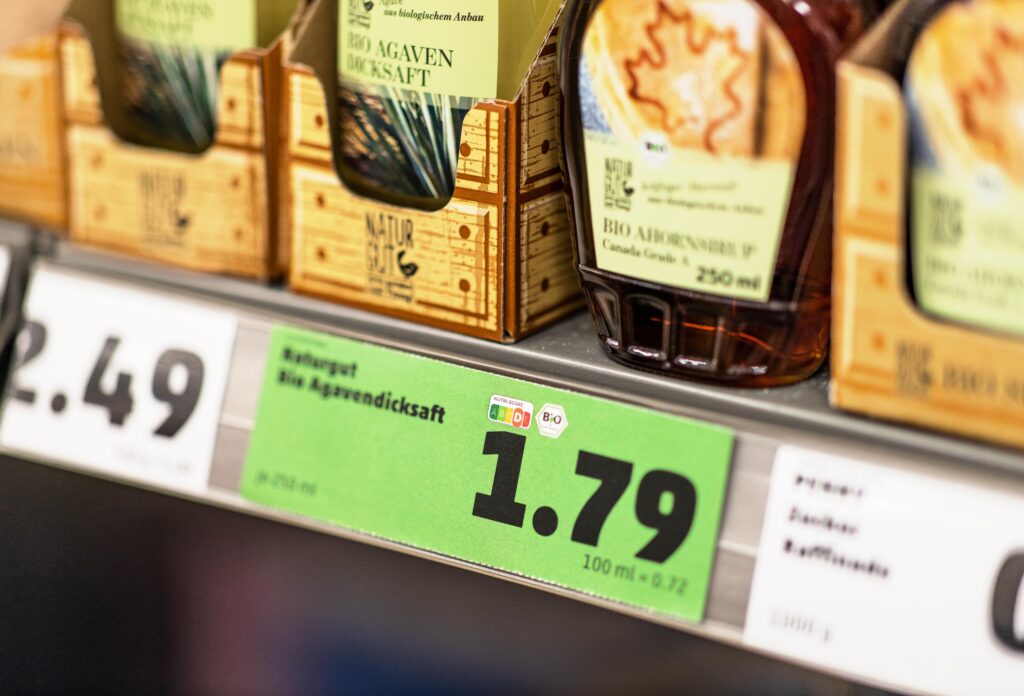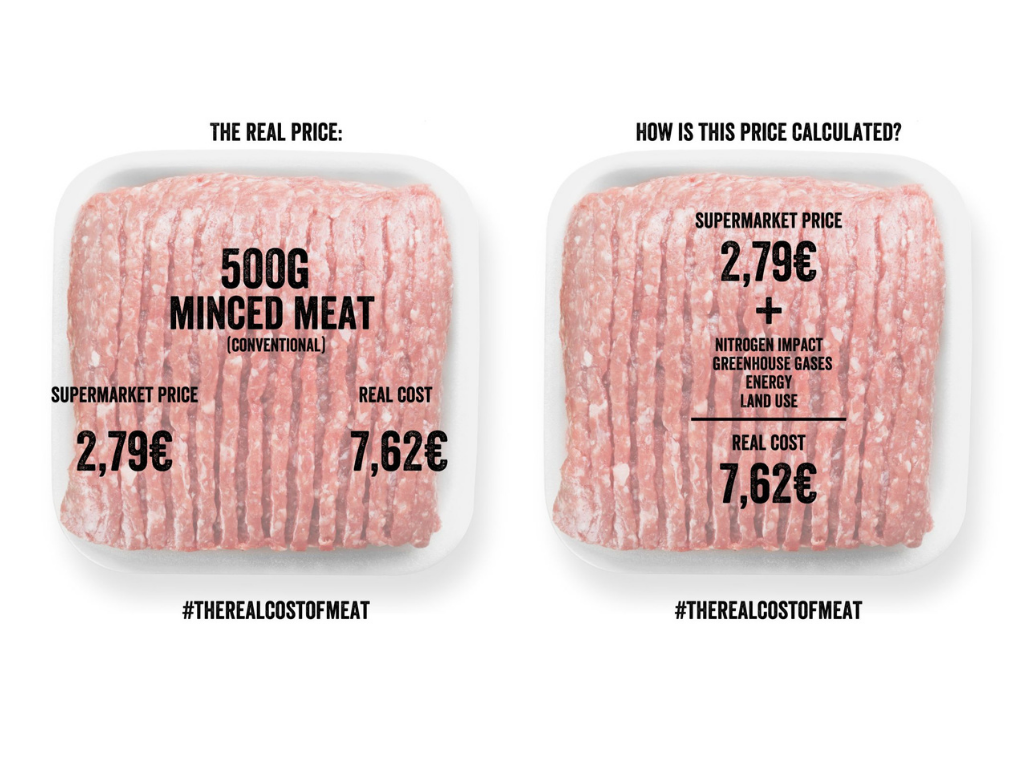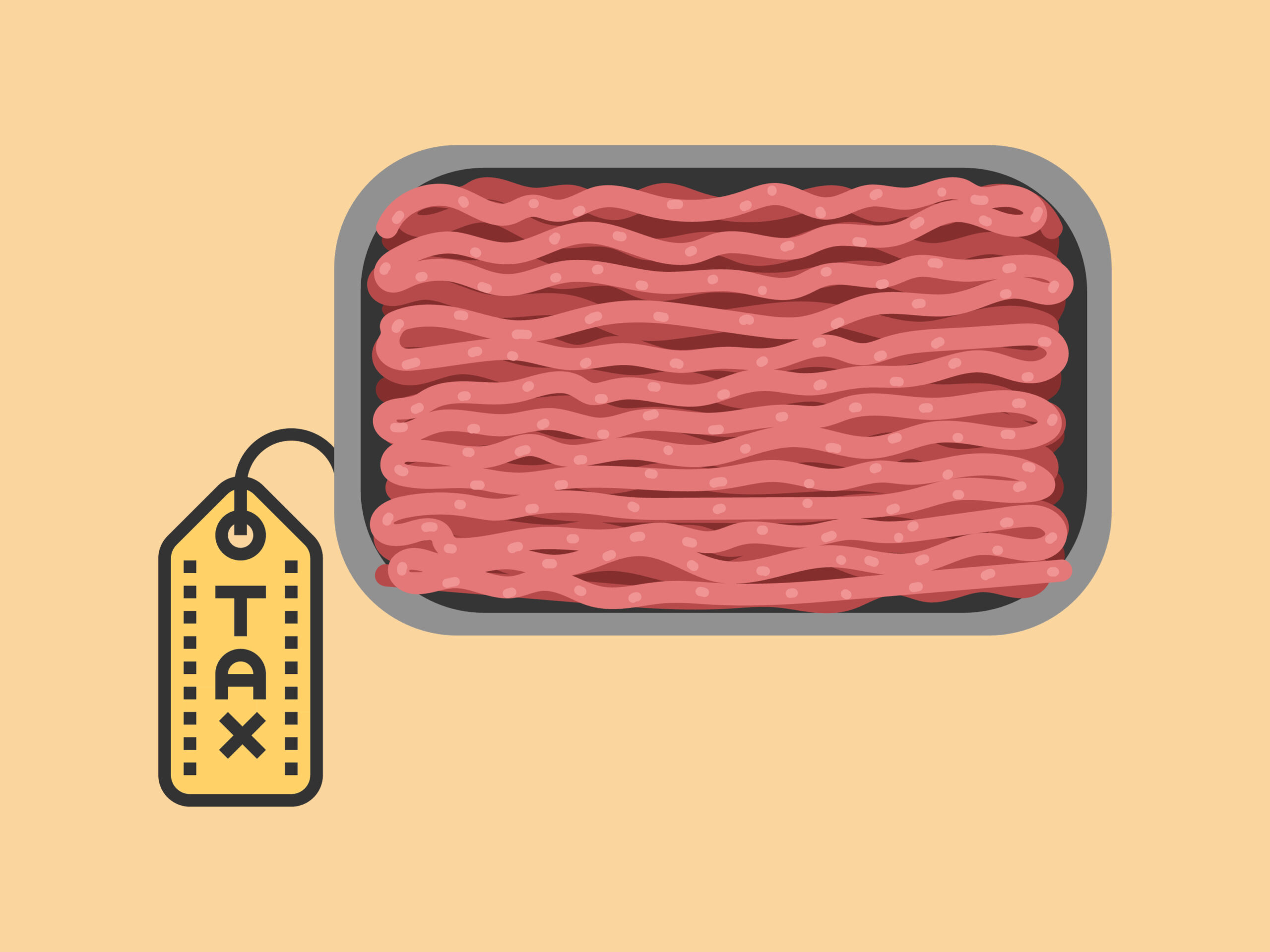Carbon Tax on Meat Could Generate €8.2B for Europe’s Largest Vegan Market
4 Mins Read
A carbon tax on highly emissive foods like meat could reflect their ‘true cost’ in Germany, cutting agricultural emissions by a quarter and netting €8.2B in annual revenue.
In August 2023, Germany’s largest supermarket raised its food costs for a week. But this was no ordinary price hike – Rewe Group increased the markups of nine products at over 2,000 stores of its discount retailer Penny, specifically to highlight their true cost on the planet.
It meant that cheese was as much as 94% more expensive, while sausage prices were jacked up by 88%. In contrast, vegan schnitzels – with their significantly lighter environmental impact – were only 5% dearer.
The Penny trial came four years after German politicians proposed raising the VAT on meat to 19%, a change that research shows would be supported by 70% of citizens. The argument is that animal proteins use up too much land and water while emitting massive amounts of greenhouse gases, worsening climate change by the day – so the prices of these products should reflect that.
Now, a new study by climate researchers has given weight to this reasoning. They suggest that simply charging a climate levy on animal products could cut Germany’s overall emissions by 2%, a decrease six times larger than the total emissions of the domestic aviation sector. It would also boost the country’s economy and food security, the scientists note in the Food Policy journal.

Carbon taxes would help Germany surpass its agri-climate goals
Current market prices don’t reflect the true social costs – the economic damages resulting from each additional tonne of carbon emitted – of most food products. This makes it harder for consumers to be eco-conscious when buying their food.
To present a detailed picture of how Germans would respond to price changes, the scientists used a demand model to analyse the effects of greenhouse gas pricing on consumption and emissions.
When applying a surcharge of €200 per tonne of GHG, they estimate that demand for beef would plunge by 53% due to the new price, which would rise by 51% (or an increase of over €4 per kg). The cost of sheep and goat meat, cheese, and butter would be up by 49%.
Overall, dairy and eggs would see markups of 25 cents per kg, but are associated with the largest reduction in emissions and highest revenue from the tax, since their consumer demand would only fall by 18%.

“Households would tend to buy more food that is less carbon-intensive on average, such as vegetables. A climate fee would not only directly benefit climate protection, but could also encourage sustainable consumption,” study co-author Max Franks, a scientist at the Potsdam Institute for Climate Impact Research (PIK).
Agriculture accounts for 8% of Germany’s emissions, and the government has set a goal to reduce annual emissions by 20% (or 14 million tonnes) by the end of the decade, from a 2018 baseline. A meat and dairy tax alone could reduce emissions by 22.5% (or 15.3 million tonnes) annually.
The revenue incurred from the carbon tax on animal proteins was estimated to be €8.2B annually, a sum that – in the researchers’ model – is redirected towards investments in more sustainable agriculture or used as a “climate dividend” (equal to €104 per person) to provide relief to low-income households, while richer folks bear slightly higher costs.
Finding the balance for domestic producers
“The main argument to directly tax consumers is that domestically produced and imported goods are equally affected by the carbon tax,” the authors argue. “If the carbon tax is levied on domestic producers only, imports become relatively cheaper, which in turn is expected to increase production abroad and thereby lead to emission leakage.”
To resolve that potential issue, they suggest using a carbon border adjustment mechanism, which would place a tariff on imports equal to the difference between the carbon prices paid by domestic and foreign producers.
The study states that while a carbon tax would raise the prices of meat and dairy, it would bring a “relative cost advantage for those goods associated with low emission contents, such as vegetables, meat substitutes, or plant-based food in general”.

This could uplift what is already Europe’s largest market for vegan food, with sales reaching €2.2B in 2023 (making up 40% of sales in the continent’s top six countries) and around 37% of German households bought plant-based meat and milk that year.
At the same time, Germans appear supportive of meat taxes, but more for animal welfare reasons than climate change – despite meat and dairy production emitting twice as many greenhouse gases as plant-based foods.
Organisations like the True Animal Protein Price Coalition are lobbying governments to increase the VAT on meat to offset taxes on fresh produce, and the EU’s climate advisory group has outlined the need for a carbon pricing mechanism to greenify its agrifood sector.
Denmark has heeded that advice, becoming the first country to announce a carbon tax on meat and dairy production. Beginning in 2030, cattle farmers would need to pay around $100 for their herd’s emissions on average, rising to $250 five years later.



